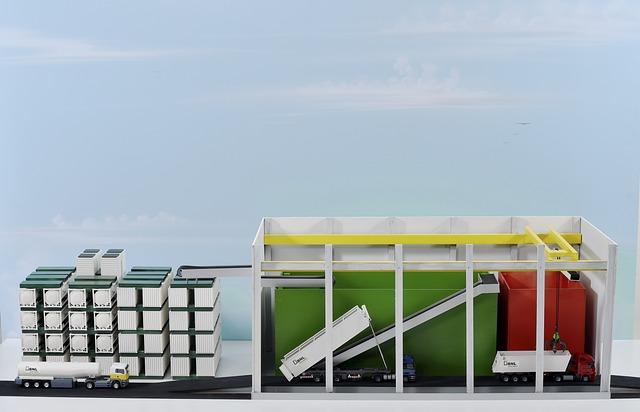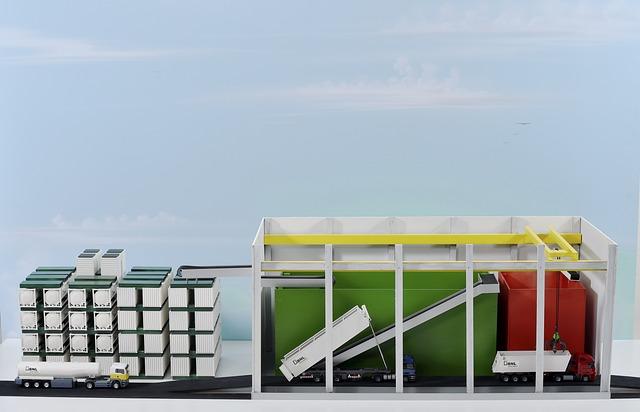- Introduction
- Sustainable Biofuel Sources
- Benefits of Biofuels
- Challenges and Opportunities
- Future of Biofuels Technology
- Conclusion
- FAQs
Introduction
Biofuels have emerged as a promising alternative to traditional fossil fuels in recent years, offering a sustainable and environmentally friendly source of energy. This article explores the various aspects of biofuels, including their sources, benefits, challenges, opportunities, and the future of biofuel technology.
Sustainable Biofuel Sources
One of the key advantages of biofuels is that they are derived from renewable resources such as corn, sugarcane, soybeans, and algae. These sustainable sources help reduce greenhouse gas emissions and lessen dependence on finite fossil fuel reserves. Biofuels can be classified into first, second, and third-generation categories based on their raw materials and production processes

(Image: Pixabay/@blazejosh)
First-generation biofuels are derived from food crops like corn and sugarcane. Second-generation biofuels utilize non-food crops such as switchgrass and residues like straw and wood chips. Third-generation biofuels focus on algae cultivation, which has high oil content and minimal land requirements.
Benefits of Biofuels
The adoption of biofuels offers various environmental, economic, and social benefits. Biofuels contribute to reducing carbon emissions by offsetting the use of fossil fuels. They also enhance energy security by diversifying fuel sources and promoting local production. In addition, biofuel production creates job opportunities and supports rural economies

(Image: Pixabay/@ybernardi)
Furthermore, biofuels have the potential to improve air quality by producing less pollution compared to conventional fuels. They are compatible with existing fuel infrastructure and can be blended with gasoline or diesel for use in transportation and heating applications.
Challenges and Opportunities
Despite the advantages of biofuels, there are challenges that need to be addressed for their widespread adoption. One major concern is the competition between biofuel production and food production, leading to potential conflicts over land use and food security. Technological advancements and sustainable practices can mitigate these challenges and create opportunities for the biofuels industry

(Image: Pixabay/@Mohamed_hassan)
Policy support, research and development efforts, and investment in infrastructure are crucial for overcoming barriers to biofuel deployment. Public awareness and education about the benefits of biofuels can also drive consumer acceptance and demand for sustainable energy solutions.
Future of Biofuels Technology
The future of biofuels technology holds great promise for enhancing efficiency, sustainability, and cost-effectiveness. Advancements in biotechnology, genetic engineering, and process optimization are driving innovation in biofuel production methods. Research is ongoing to develop new feedstocks, improve conversion processes, and increase biofuel yields

(Image: Pixabay/@mrupix)
Emerging technologies such as advanced biofuels, bioenergy with carbon capture and storage (BECCS), and bio-refineries are transforming the biofuels landscape. These developments aim to address environmental concerns, enhance energy security, and create a more sustainable energy future for generations to come.
Conclusion
In conclusion, biofuels offer a viable and eco-friendly alternative to conventional fossil fuels, with multiple benefits for the environment, economy, and society. While challenges exist, ongoing innovation and collaboration in the biofuels sector are paving the way for a more sustainable energy transition. Embracing biofuels can play a significant role in combating climate change and ensuring a cleaner, greener future.
FAQs
Are biofuels completely carbon-neutral?
While biofuels can reduce carbon emissions compared to fossil fuels, the production and transportation processes still involve some carbon footprint. However, sustainable practices and technologies aim to minimize these impacts over time.
Can all vehicles use biofuels without modifications?
Most modern vehicles can run on biofuel blends without modifications, especially those with flexible fuel engines. However, specific regulations and compatibility factors may vary, so it's essential to follow manufacturer guidelines and local regulations.

